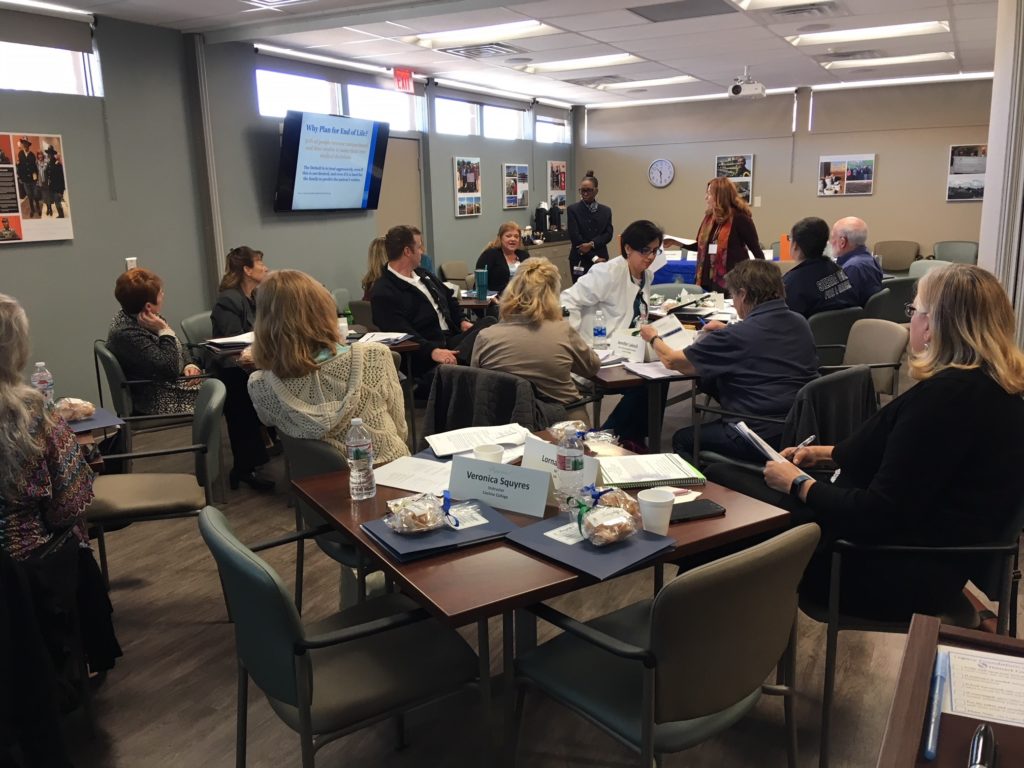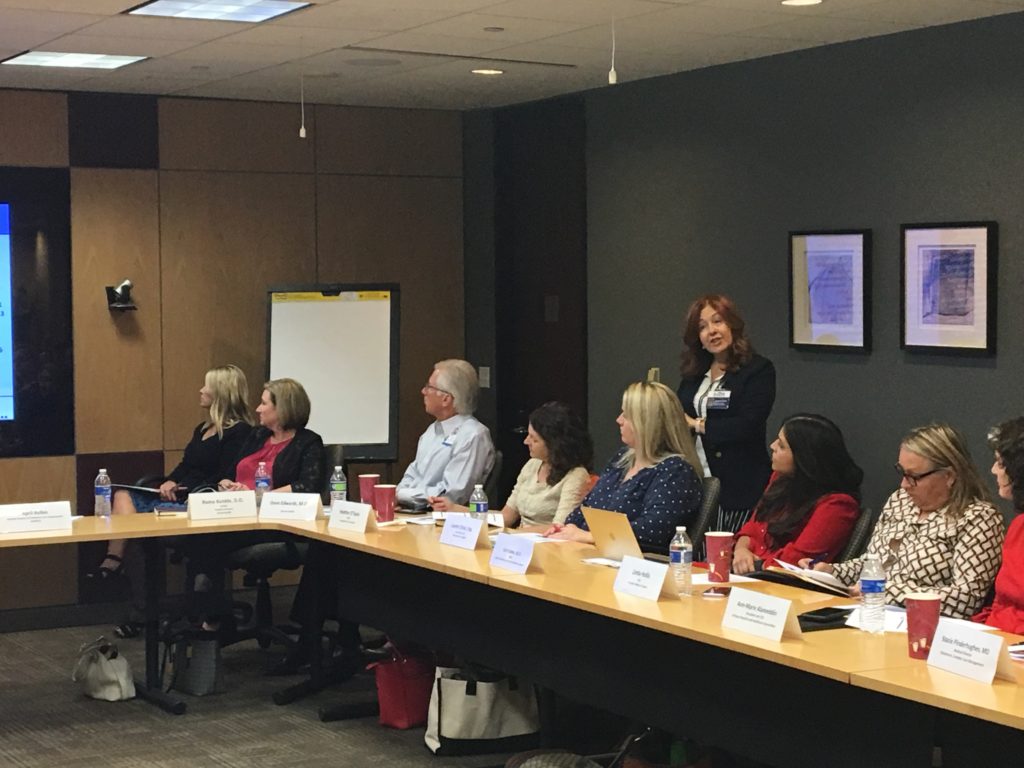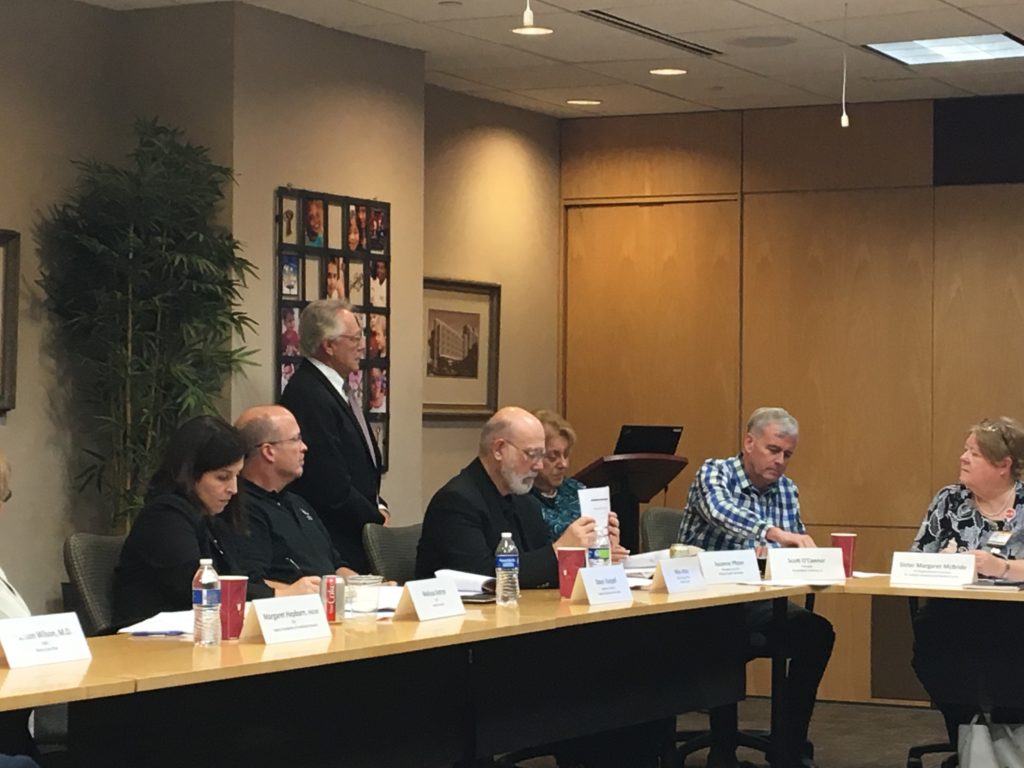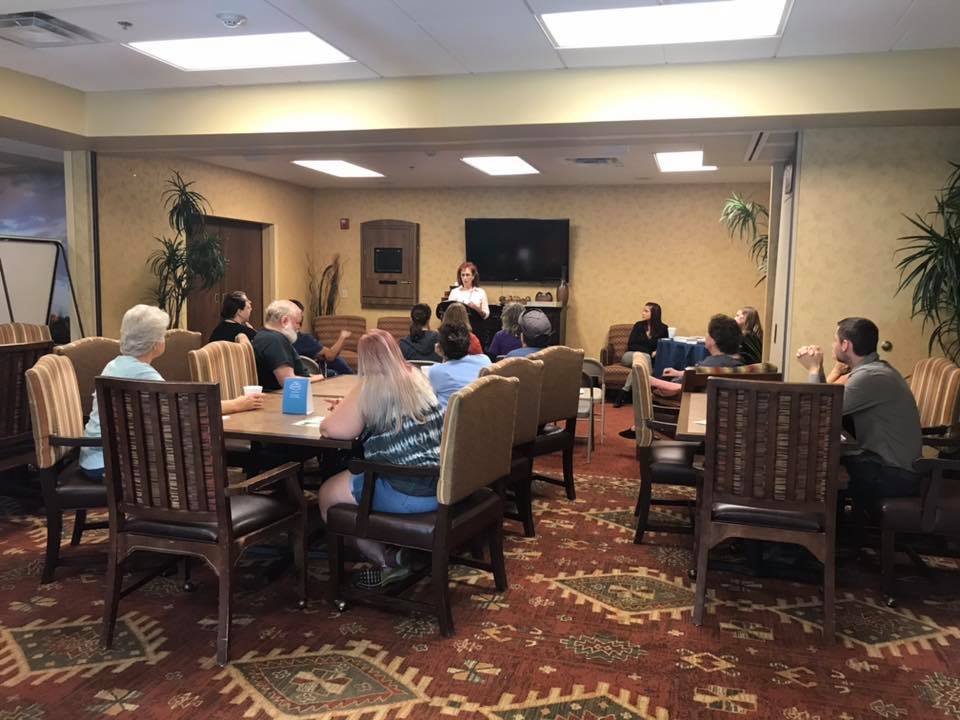Enhancing Healthcare Through the Art of Communication

Created in 2015, The Arizona Hospital and Healthcare Association (AzHHA) initiative called Thoughtful Life Conversations seeks to empower Arizonans to make known their end-of-life wishes and care directives and to equip their healthcare teams with the resources to honor them. AzHHA and its partners believe that everyone has an inherent right to receive care that is consistent with their goals and values—goal-concordant care.
Thoughtful Life Conversations (TLC) trains professionals in healthcare settings to have quality conversations with their patients about advance care planning, and to truly understand palliative and end-of-life care for people of all ages. Doctors, nurses, social workers, clergy and all providers can learn how to foster Thoughtful Life Conversations with their patients at any point on the care continuum.
Chikal A. Patel, MD, is an internist and geriatrician, certified in hospice and palliative medicine, who is passionate about teaching communication skills to healthcare providers and has been delivering Thoughtful Life Conversations training for four years. Dr. Patel says, “As we have made multiple advances in the field of medicine, we have gotten away from the art of communication, sitting down with patients and families, telling them what is wrong with them, what to expect going forward with their illness, what to expect if the treatment works, and when it doesn’t work. We have moved away from understanding what really matters to a patient, what are their values and priorities in life.”
Everyone has a right to know where they are in their illness. Thoughtful Life Conversations teaches nurses, social workers and doctors that it is their responsibility to be able to communicate effectively with their patients and their families.
“The impact of the training is that it actually provides health care workers the tools they need to have in their toolboxes, says Dr. Patel. “As physicians, we often need to give the patient and their family difficult news, and at the same time we want to seek information about the patient—who they are as a person, what are their values, what are the things that really matter to them, how can we as a health care team align their goals to the effective treatment options. When we have these conversations early on, we are able to prepare the patients and their families for what to expect, which helps them to plan ahead.”
Dr. Patel continues, “After the training, healthcare providers understand the importance of acknowledging and getting comfortable with emotions–be it the patient’s, family’s or their own. Providing appropriate language and tools to use when everyone involved is dealing with difficult emotions is invaluable and gives rise to empathetic, meaningful conversations. The training helps providers understand it’s not about what they want, it’s about what the patients’ goals and values are, and how can they help patients understand and evaluate their options. This also helps the healthcare providers come to terms with their own emotions.”
In addition to training healthcare professionals, a second component of the initiative is public education and activation. A minority of the population is aware of the vital importance of advance care planning. Through grassroots education that is facilitated at the local level, more and more people are becoming familiar with and utilizing advance care planning options. With the many partnerships AzHHA has developed throughout the state, end-of-life discussions become normalized and advance care planning is being woven into the cultural fabric of our collective lives.
Another important piece of goal-concordant end-of-life care advanced by AzHHA and part of Thoughtful Life Conversations is POLST (portable medical orders for the seriously ill). More specific than advance directives and providing more options than Do Not Resuscitate (DNR) orders, POLST was developed to honor the wishes of seriously ill and frail patients who often require crisis medical care. POLST orders are based on the conversation between provider and patient about options and what the patient wants. The Arizona POLST program, housed at AzHHA, was endorsed by National POLST in July 2020, signifying that the Arizona program and form meet national evidence-based standards.
Dr. Patel talks about the long-term impact of the Thoughtful Life Conversations initiative: “Effective communications can be helpful in so many ways–improving patient outcomes, improving patient and family experience outcomes, and improving the experience of healthcare providers. Having effective communications would help prevent burnout when the healthcare providers have the conversation with the patient and the family early on and prevent all the surprises at end of life. The impact of this can be huge and extremely positive. It can lead to effective, appropriate use of the healthcare system which in turn causes significant reduction in negative patient outcomes.”


